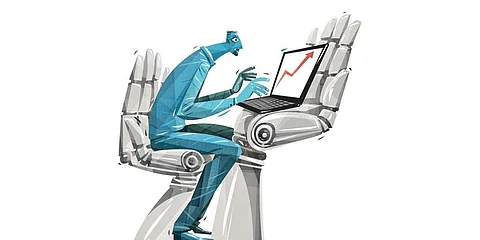Fear of the unknown thwarting AI adoption
Many technology experts, including those who worked extensively in shaping Artificial Intelligence (AI) over the years, have woken up to the risks AI poses to humanity — the most immediate being the huge loss of jobs. Some estimates peg the number of job losses due to AI at 300 million. The fear of job loss is more alarming this time. Unlike previous technology shifts, the adoption of AI may endanger a large number of white-collar jobs as well. While the concerns may be real, technology enthusiasts sometimes exaggerate the risks posed by new technology by overstating its potential.
Artificial Intelligence is getting increasingly sophisticated with big data and machine learning techniques, so much so that machines can be developed with human-like capabilities. We had already experienced the capabilities AI can render to devices when audio assistants like Alexa flooded the market a few years ago. Alexa can respond to your audio queries, play songs for you, and even get your questions answered. Then came ChatGPT, an AI chatbot which can be trained to follow orders and provide detailed answers. ChatGPT and other such tools—most in infancy vis-à-vis their abilities—have already become popular. They can be used to write essays, program codes, edit copies, etc. Big technology companies are already exploring ways to reduce employee strength by deploying AI. It is predicted that IBM will replace nearly 8,000 jobs in 2024 with AI. The effect of AI deployment could be different for different sectors as far as job losses are concerned. As many as 40–50% of legal and administrative tasks can be automated using AI. Apart from job losses, AI poses challenges like social media manipulation, breach of privacy, and many other ethical and moral issues like creating a more inequitable society.
While these challenges and risks could be genuine, like in all previous technology shifts, the current narrative of painting AI as the Frankenstein monster could be due to the fear of the unknown, and hence exaggerated. The use of technology opens up new possibilities—possibilities many would not have imagined. And at the same time, it throws up new challenges. Humankind has, over the centuries, learned to use the enormous possibilities of technology adoption and minimise its ill effects. This time it should not be any different, and so, while we need to be mindful of the negatives, we cannot shut the doors on the technology revolution called AI.

